
Freshfel Headlines – number 6 / 2017, covering news from October and November 2017
Freshfel attends EU Platform on Food Losses and Food Waste meeting
On the 7 November Freshfel attended the third meeting of the EU Platform on Food Losses and Food Waste in Brussels, to which Freshfel is a member. An introduction to the current state of affairs was given by Commissioner Vytenis Adriukaitis, followed by MEP Biljana Borzan who focused her address on inter-sectoral cooperation to prevent food waste, while at the same time improving food safety. Following this, the Commission gave an update on the Circular Economy Action Plan in regards to EU food waste prevention and initiatives, such as the revision of the Waste Framework Directive. Updates were also given to Platform members on the activities of the Platform’s Sub-group on Food Donation and Sub-Group on Action and Implementation. Furthermore a state of play on the Global Food Loss Index to monitor UN Sustainable Development Goals 12.3 (halve food waste per capita by 2030), to which the Platform supports, was presented by FAO. Other topics discussed during the meeting included date marking and a joint project by Commission and European Parliament on food redistribution. The next meeting of the Platform is scheduled for the 24 May 2018 in Vilnius to be held in conjunction with the AgroBalt fair. The agenda, presentations and video of the event are available here.
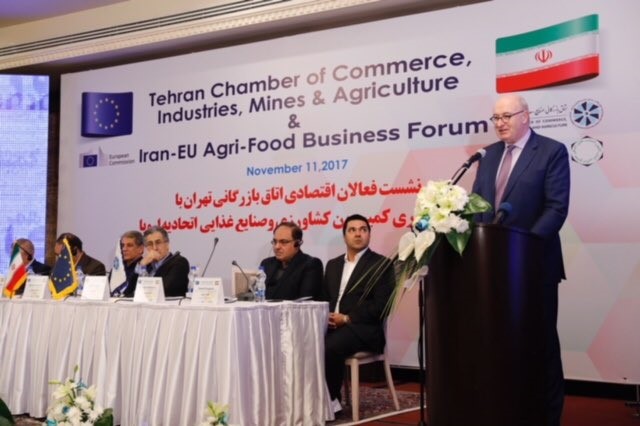
Freshfel takes part in the High Level Mission of Commissioner Phil Hogan to Saudi Arabia and Iran
Freshfel General Delegates were part of the 45 agri-business representatives on the diplomatic offensive tour of Commissioner Hogan in Saudi Arabia and Iran at the beginning of November. The tour was an opportunity to further evaluate market access in these two countries with a contrasting profile in terms of current market access position for fruit and vegetables. Saudi Arabia is today still heavily dependent upon imports and the EU is ranked 5th among the suppliers of the Saudi markets with more than 150.000 T. While a number of potential challenges could impact future developments, this market remains together with the United Arab Emirates a leading destination for EU exports. Freshfel presented at the Chamber of Commerce the key quality and business assets for Saudi Arabia business to trade with EU fresh produce. In contracts, current exports to Iran remain limited due to several financial constraints and also competition with local production. There is however a market potential to explore as a new business environment is designed. The HLM mission was the opportunity to set new contacts and look at opportunities for EU exports when the country of 80 million people is also considering access to WTO.
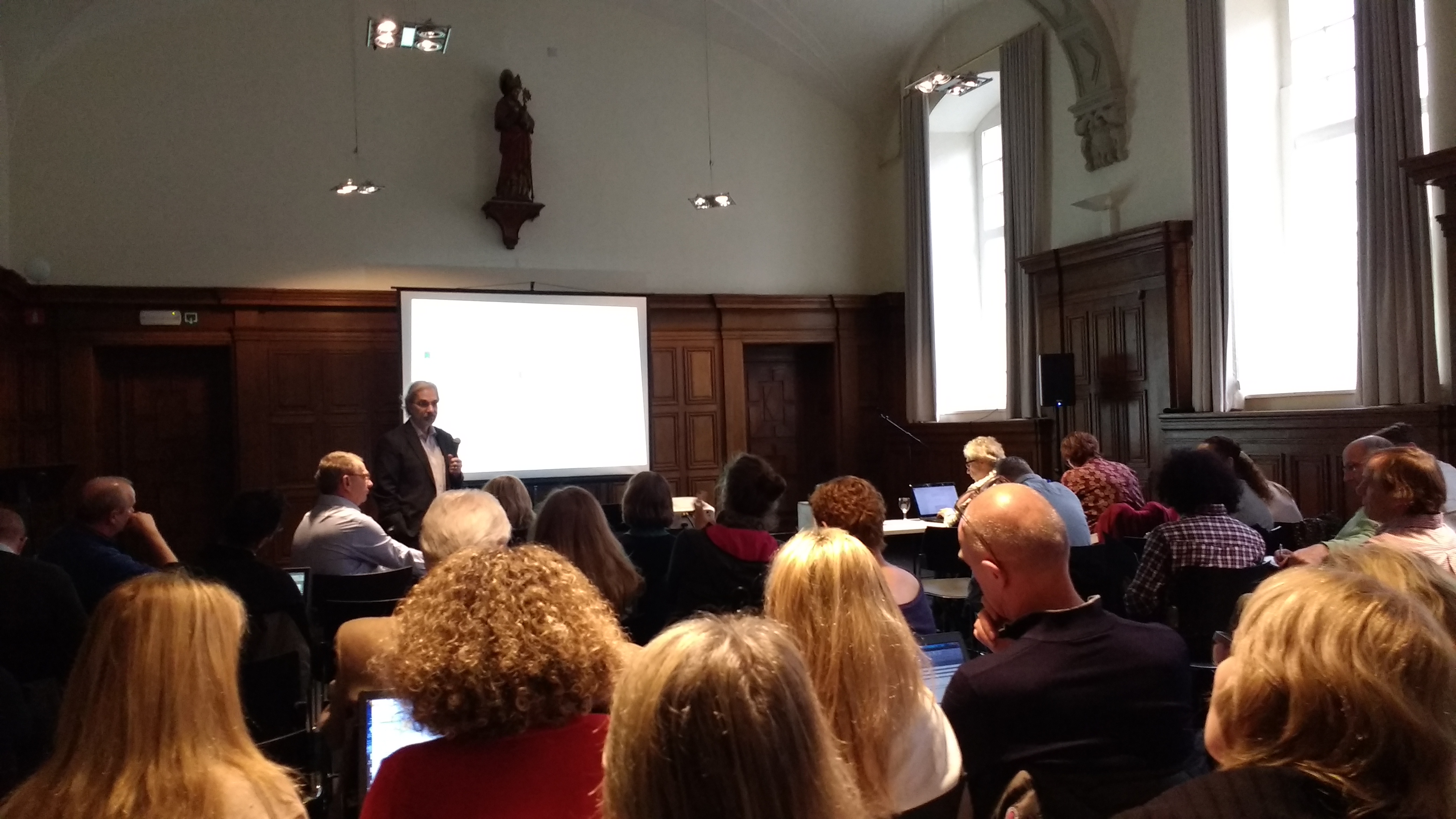
EuroMix Consortium meeting
The EuroMix consortium met again for its biannual consortium in Ghent, on 8-10 November. The EuroMix project is a Horizon2020 project that aims to develop a tiered strategy for risk assessment for mixtures of residues. The project is over half way, with an end date of 15 May 2019. A representative of the EuroMix consortium of Ghent University presented the state of play and requested input from the stakeholders during Freshfel’s Food Quality Meeting in May 2017. In the breakout sessions for Work Package 8, which deals with stakeholders’ input and feedback, the results of the online survey, which was distributed among others during the Food Quality Meeting, was analysed and presented. 32 surveys were filled out completely. Participants of the survey were mainly regulatory people working for the government, scientists, but also NGO, industry, and consumer representatives. Risk management strategies in cumulative exposure assessment is evaluated as challenging and harmonization within Europe and between other regulatory instances world-wide is necessary.
Freshfel is involved as a dissemination partner in Work Package 8 and 10 on stakeholder assessment and dissemination.

EUFRUIT Annual Assembly
The EUFRUIT consortium, in which Freshfel participates as dissemination partner, met on 14 November for its annual General Assembly. Already halfway through the project, the consortium members collected a large array of best practices and ongoing research efforts on a public Knowledge Platform at http://kp.eufrin.org/. Additionally, the platform offers a set of synthesis reports which reflect the current state of play in research along four thematic areas: performance of new varieties and cultivar developments, minimising residues on fruit and in the environment, improving quality during handling and storage, and enhancing sustainable production systems. The EUFRUIT project was launched in March 2016 with the objective of facilitating access to knowledge and disseminating existing research and innovation potential for the benefit of the fresh fruit sector. EUFRUIT is a thematic European Fruit Network, which comprises of a consortium of 21 official partners from 12 different countries. To connect the researchers’ work to the business reality of the sector and to represent the fruit industry in the multi-actor project, both AREFLH (Association of the Regions producing fruit, vegetables, and horticultural products) and Freshfel Europe (European fresh fruit and vegetables Association) are part of the consortium. Both sector associations are actively involved in the dissemination of the project results and in providing input from a business and policy perspective in the project’s goals and end results.
On the eve of the General Assembly, on 13 November, the Work Package leaders and assistant Work Package leaders met for a review meeting at the European Commission, during which the consortium received a positive feedback halfway the project. The amount of research results and information posted on the Knowledge Platform was positively received, as well as the cooperation between the partners. The Commission pointed out that during the second part of the project, the consortium would have to expand its efforts to reach the end users and business operators.
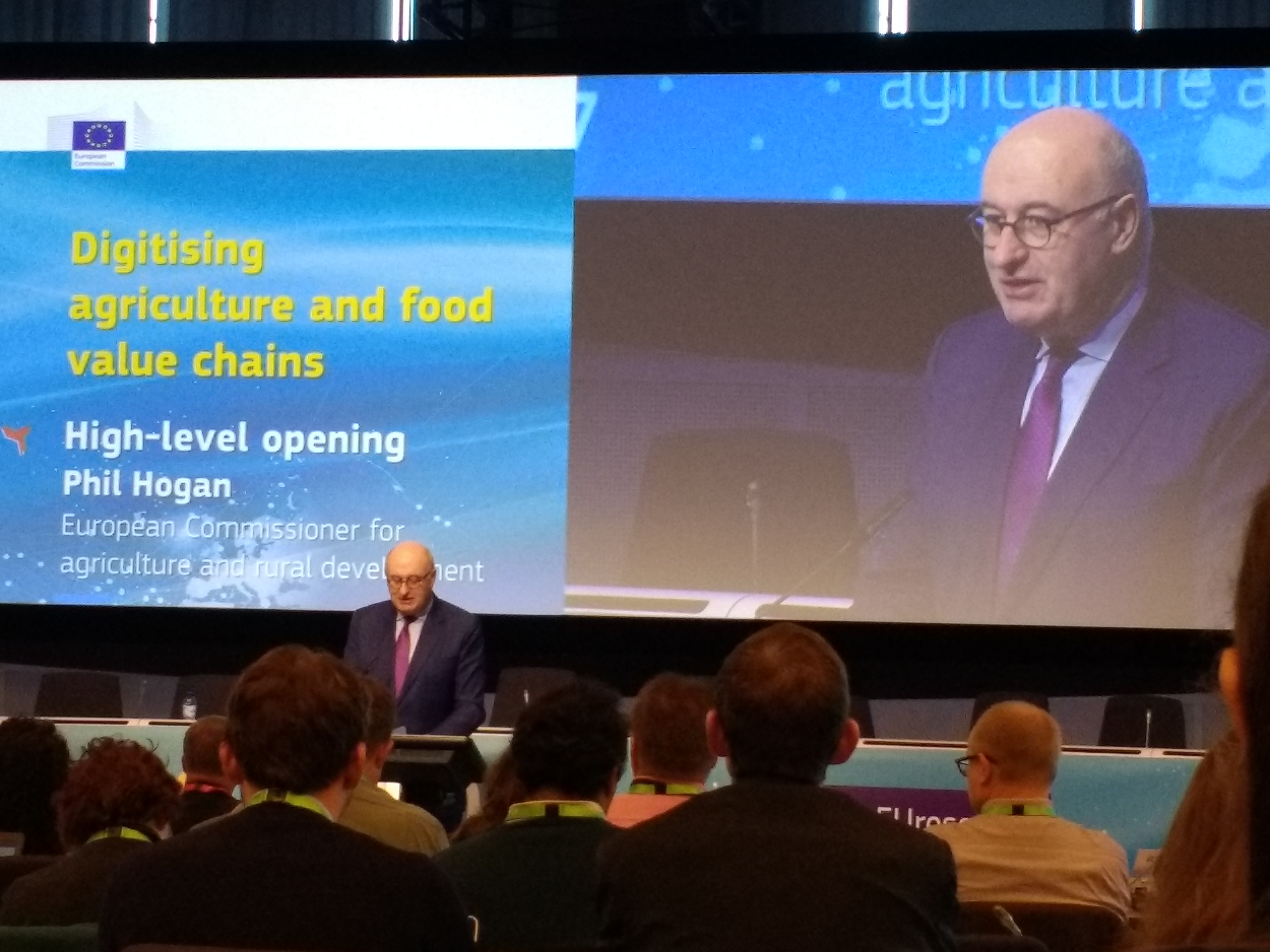
Research and Innovation Week
In between 14-17 November, Freshfel attended the Horizon 2020 Societal Challenge 2 (SC2) Infoweek in Brussels organised by the Commission’s Research Executive Agency (REA), DG AGRI and DG RTG. SC2 covers ‘food security, sustainable agriculture and forestry, marine and maritime and inland water research and the bioeconomy’.
The first day of the Infoweek was the SC2 Info Day encompassing 2018 calls for proposals. The new €1.3 billion of funding opportunities under the 2018-2020 Work Programme were presented in the morning and in-depth information sessions on calls open in 2018 was held in the afternoon. The 2018 schedule for calls is the following:
- 13 February 2018 deadline for single and two stage calls
- May/June 2018 applicants will receive feedback
- 11 September final deadline
The Commission noted that as in 2017 a dynamic threshold will be used for the evaluation of first stage proposals whereby the overall threshold will be set at the level such that the total requested budget of proposals admitted to stage 2 is as close as possible to three times the available budget and not less than two and half times the available budget.
In light of this, Freshfel will organise, in coordination with AREFLH, EUFRIN and EUVRIN a research conference on 23 January 2018, which will focus on the challenges for the fruit and vegetable research from a business perspective. Speakers will include Members of Parliament, policy makers from the Commission, and representatives from the sector. The registration for the conference will start soon. This conference will be a unique opportunity to voice the needs of the sector for relevant fruit and vegetable research to the relevant stakeholders.


#FruitVeg4You campaign promotion outside European Parliament
This month on the 21 November Freshfel alongside Copa-Cogeca and MEP Hilde Vautmans distributed seasonal European apples and pears outside the European Parliament in Brussels as part of the social media campaign #FruitVeg4You. This initiative aimed to raise awareness of the importance of a healthy and balanced diet through fruit and vegetable consumption and to inspire the general public as well as policy makers in promoting the consumption of fruits and vegetables. Supporting the campaign outside the European Parliament, MEP Vautmans said, “I support this initiative because I really want to encourage people to eat more fruit and vegetables every day. It’s really good for your health and for our European farmers who are still suffering from the Russian export ban. We have the best European products. We encourage you to eat 3 or 4 pieces a day”. The #FruitVeg4You campaign is a joint commitment by Freshfel and Copa-Cogeca to the EU Platform on Diet, Physical Activity and Health and began in March 2017. A video and press release of the fruit distribution initiative are available here and here respectively, and for examples of the #FruitVeg4You campaign in action, see the latest posts on Twitter here.

Freshfel participates to the Advisory Group on Food Chain, Animal and Plant Health
Freshfel participated to the first round of the Advisory Group on the food chain, animal and plant health on the 22 November 2017 in its new structure and composition. DG Santé had been calling earlier in 2017 for applications from all food chain stakeholders to renew and modernise the forum of exchange with more up to date participants and to allow deep and constructive debate in all areas of relevance. Freshfel had applied and been re-accepted, after having been already a member to this advisory group before. The first meeting comprised a diverse agenda touching upon the learnings from the fipronil-case this summer and its impact on the future crisis management of the Commission, as well as the current status of the ongoing reforms on Official Controls, Plant Health and the Refit-Evaluation on pesticides. The meeting left place for comprehensive debate and Q&A on the most urgent issues. Next to Deputy Director General for Food Safety, Ladislav Miko, DG Santé Commissioner Vytenis Andriukaits attended the meeting and gave an overview of the current DG Santé actions and To Do’s for the upcoming months.

Freshfel attends Civil Dialogue Groups
Fruit and Vegetables
The Civil Dialogue Group on Fruit and Vegetables, chaired by Freshfel representative Jose Antonio Garcia Fernandez (Director of Ailimpo), was organised on 22 November at DG Agri. The meeting discussed the latest state of play of several CAP topics: the presumed coming into force of the agricultural provisions of the Omnibus Regulation on 1 January 2018, Delegated Regulation 2017/891 and Implementing Regulation 2017/892 and the updates in the national strategies of the Member States, the horizontal regulation on import and export, the exceptional temporary measures, and the implementation of the new merged School Fruit and Milk Scheme. Other topics discussed was the follow-up action on the outcomes of Agricultural Market Task Force, especially regarding the Unfair Trading Practices, trade defence mechanisms, plant and food safety, the Annual Work Programme 2018 for promotion, and updates of the market situation and dashboard of certain key vegetables (tomatoes, peppers and cucumbers) and fruit (stone fruit, apples and pears, oranges and kiwifruits).
Organic
Freshfel participated in the Civil Dialogue Group on Organic that took place on Friday 24 November. Topics discussed were the presentation of a study of the Research Institute of Organic Agriculture (FiBL) on Market transparency – Data on organic agriculture worldwide. The study indicates, among others, that organic production is increasing worldwide, but that demand is increasingly concentrated in the EU and North America. The participants pointed out the difficulty in finding individual data per Member State or third country, the lack of harmonisation of the data in general, and the fact that there is no customer code specific for organic.
Second topic discussed was the state of play of the organic regulation, whereby the Commission indicated that most of the Delegated and Implementing Acts will have to be adopted before 1 January 2021. Most likely, certain topics will be grouped together and prioritised in the different acts, and priority might be given to rules that affect investments. Third point on the agenda was an overview provided by the Commission on the impact of the Official Controls Regulation on organic, indicating that there will be specific control rules in addition to the Official Controls Regulation.
Other topics discussed were the state of play of the European Action Plans, EGTOP activities, a follow up on EU trade agreements, during which the members pointed out their concern for the change in the EU-US agreement concerning greenhouses and hydroponics, and clarifying comments of the Commission regarding the online certificates within TRACES.
Sustainability and Climate Change
Freshfel attended the CDG on Environment and Climate change on the 22 November Brussels. As well as elections of the Chair and Vice Chairs, the topics discussed included an independent study on the CAP, smart farming, water and agriculture, green infrastructure and the main outcomes of the Clean Air Forum and recent COP23 discussions. Mr. Maes (CEJA) was elected as Chair for a second term and Mr Lanäuer (Copa) and Ms Bas Defossez (EEB) were elected as Vice-Chairs.
A predominant presentation during the CDG meeting was the presentation of an independent fitness check of the CAP carried out by the Helmholtz Centre for Environmental Research. This 260 page study on the CAP was carried out by 23 scientists over one year to evaluate the economic, social and environmental impacts of the CAP and if it was fit for purpose. The study was carried out from January – November 2017 and encompassed a desk study of 864 publications, over half of which were assessed and used. The presentation focused on the evaluation of the environmental aspects of the study, which assessed environmental efficiency and effectiveness, internal coherence, and EU added value. Additionally of note was the presentation of the discussions at the Clean Air Forum held in the Paris on the 16-17 November were also presented. This event brought stakeholders together to discuss air quality solutions to prevent preventative deaths due to low air quality throughout Europe. During the event, a panel was held on agriculture and air quality to bring to light the sector’s role in both causing and preventing air pollution.
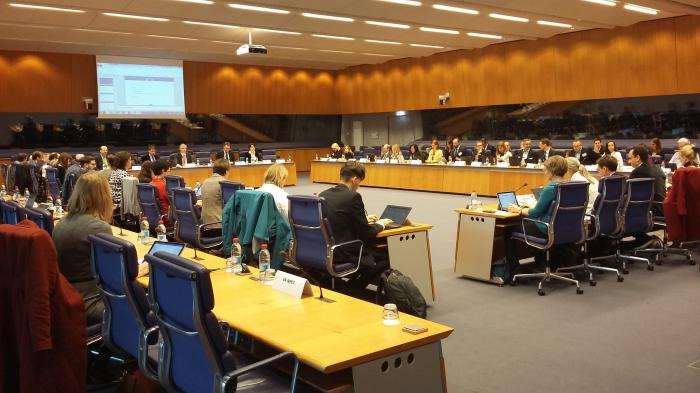
Freshfel attends EU Platform on Diet, Physical Activity and Health meeting
On the 30 November Freshfel attended the EU Platform on Diet, Physical Activity and Health meeting in Luxembourg, which was held alongside a joint meeting with the High Level Group on Nutrition and Physical Activity. The morning session comprised of the joint meeting comprised of Member State representatives and led by the European Commission. This first session focused on the Action Plan on Childhood Obesity, and specifically its mid-term evaluation. Following this, national initiatives from Member States on healthy diets and food reformulation were presented. These included presentations of the Evolved Nutrition Labelling initiative, Nutri-score and the Joint Action on Nutrition and Physical Activity (JANPA). The Platform meeting took place in the afternoon session. The main topic discussed during this session was commitments across Europe in the area of physical activity promotion. Furthermore to conclude the meeting the Tartu Call for a Healthy Lifestyle was discussed among Platform members, including Call 5 and Call 6 which support the EU School Fruit, Vegetable and Milk Scheme and the campaigns promoting fruit and vegetable consumption as part of the annual calls on the Promotion of Agricultural Products.
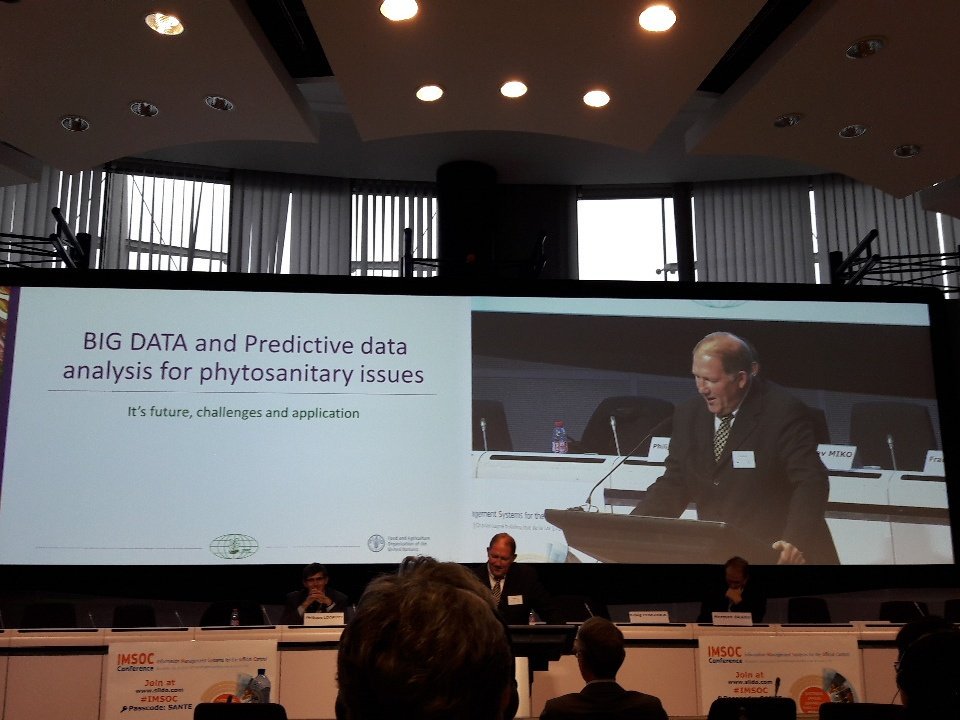
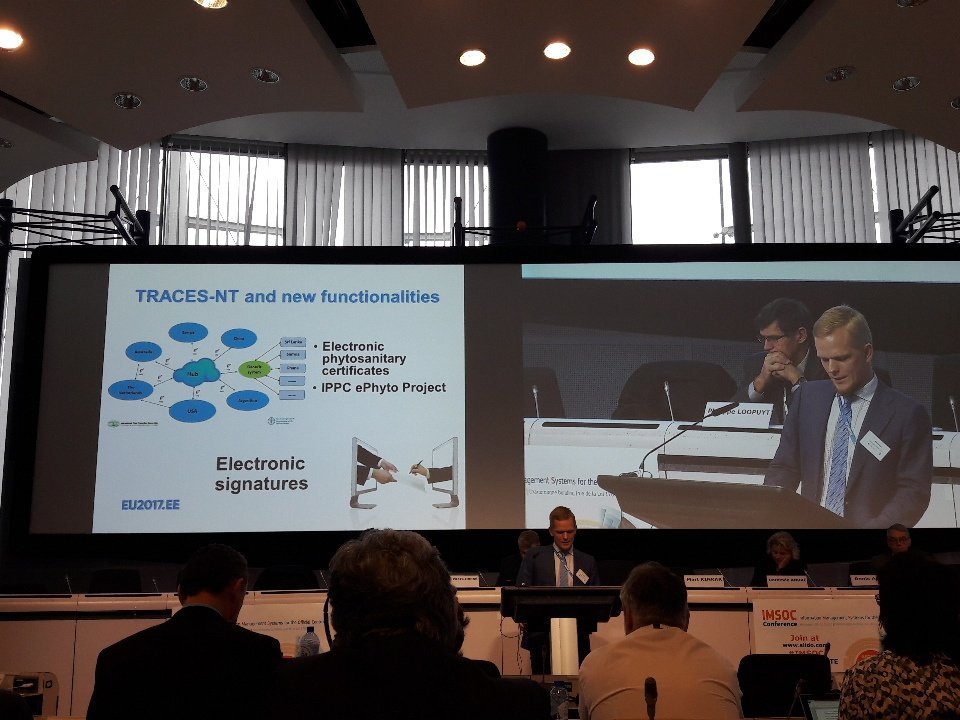
“Electronic Official Controls of Food and Plant Products”
Freshfel attended the conference on “Electronic Official Controls of Food and Plant Products”, which was hosted by Directorate General Santé together with the Estonian presidency. The conference aimed to explain the implications of the Official Control Reform and the impact and current work on the IMSOC – the information management system for official controls. The meeting was opened by the Deputy Secretary General of the Estonian Ministry of Rural Affairs Toomas Kevvai. A key focus of the meeting was to explain the unification of the various electronic systems such as RASFF, ACC, Europhyt as well as various certifications into TRACES, which are currently operated separately. IPPC has been further presenting the E-Phyto project as one of the global initiatives on digitalization of control procedures, of which Freshfel is a member of the Industry Advisory Group. Freshfel is working for improved cooperation between European and global initiatives, to facilitate trade in sustainable manner.
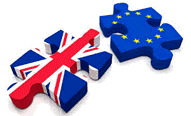
Exchange on Brexit technical challenges together with the UK Department for Environment, Food and Rural Affairs
Freshfel as member of the umbrella organization of Celcaa – The European Liaison Committee for the Agricultural and Agri-Food Trade – met several officials of the U.K. Department for Environment, Food and Rural Affairs “DEFRA” together with other agri-food representatives in London on the 29 November 2017, to debate about the possible implications on agri-food trade after the U.K. has left the European Union. The meeting was dedicated to highly technical topics such as potential technical barriers for trade, once the U.K. has become a third country. The U.K. is a big net-importer of agri-food products such as of 3.1 mio. T fruit and vegetables from the EU-27 as well as 2.7 mio. T from third countries. Therefore, trading and customs procedures, certification, controls and legal requirements will need to be clarified at the earliest, to secure continuous trade flows in a perishable environment. The agri-food representatives, including Freshfel, have used the opportunity to remind DEFRA, that a swift clarity is needed on technical matters to allow the sector to prepare and to adapt to the new trading environment in a timely manner.

Freshfel contributes to the Public Consultation on Unfair Trading Practices
Last week, Freshfel responded to the Public Consultation on the Improvement of the Food Supply Chain. The consultation consisted of a questionnaire and the possibility to submit a position paper. Given that the questionnaire approached the challenges that are faced in the chain from one specific angle, Freshfel responded with only a position paper, attached below, explaining the specificities of the fruit and vegetable supply chain, and pleading for nuance in case action will be undertaken. It covered all three topics of the consultation (Unfair Trading Practices, Producer cooperation, and Market transparency).
This consultation is embedded in a larger effort of the Commission to collect the views and opinions of the stakeholders concerning these matters (complemented with an impact assessment over summer, and an ongoing survey concerning UTPs for companies). It is to be expected that the Commission will undertake legislative action, as stated by Commissioner Phil Hogan in his speech at the FSAI Conference on “Safeguarding the food chain” in Dublin Castle on 6 October 2017.
The Freshfel position paper is available to read here.

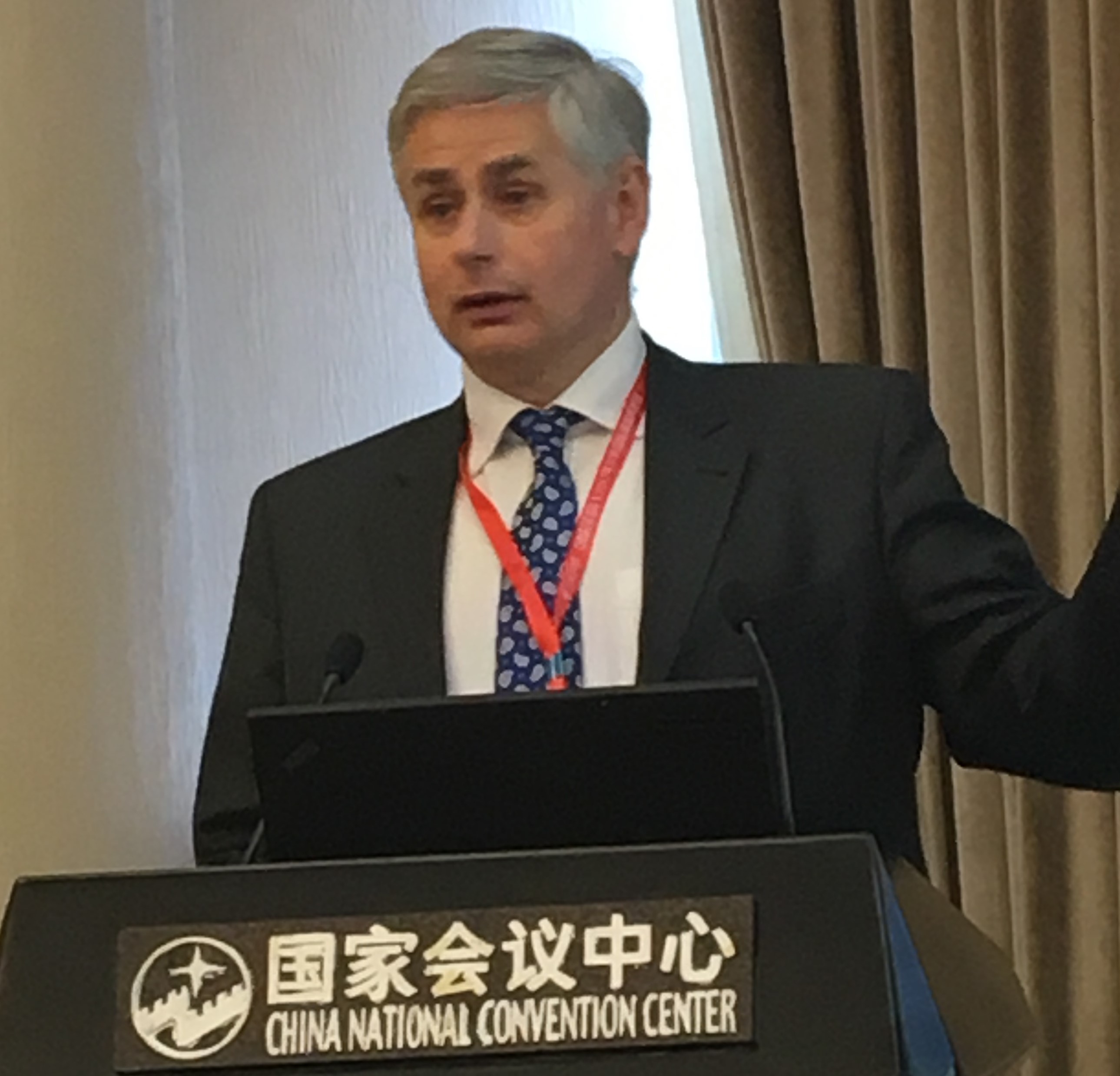
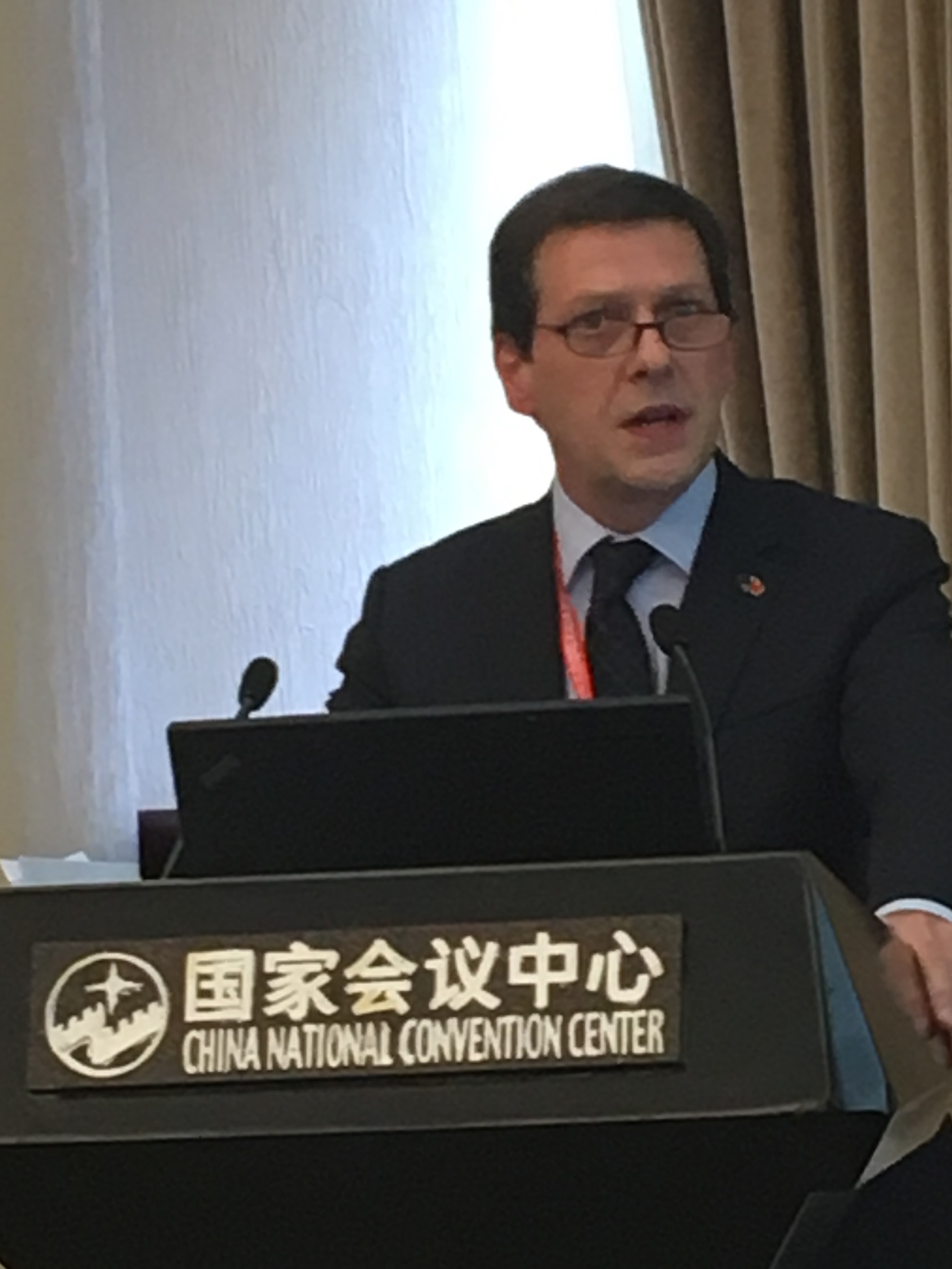
Freshfel hosts a seminar in Beijing to foster cooperation and understanding on fruit and vegetable trade with China
For the second consecutive year, Freshfel hosted a meeting on 4 November 2017 in Beijing with the support of CIQA (China Inspection and Quarantine Association). Freshfel got the support of the EU delegation in a meeting which was the opportunity to address market access issues with the representatives of AQSIQ (Chinese Inspection and Quarantine authorities) and with the CIQ (inspection bodies) of Hebei and Shenzhen. About 20 delegates were part of the European delegation attending the meeting.
The meeting was the opportunity to look at ways to further boost trade with China. The European Union currently (2016 data) exports 37.040 T (worth 54 Mio €) to China. Despite the potential of the Chinese market, this is only a small part of EU F&V exports (0.7%) directed to China EU exporters remain in a diversification mode following the impact of the Russian embargoes and also the slow down of export business to North Africa (in particular Algeria, Egypt and Libya). Consequently, current exports remain still well below (in volume and value) the export levels prior to the 2014 embargo (over 6 Mio T). Exports to China, while remaining within modest volumes, are steadily growing. China is now the second destination within the Asian markets for EU fresh fruit and vegetables after Malaysia. Kiwi are nowadays the main fruit categories with ca 14.000 T, followed by oranges with ca 11.000 T, pears with 3.200 T and apples with 2.100 T. Produce originates from Italy (39%), Spain (17%), Greece (9%), Belgium 8%, Netherlands (4%) and Poland (1%). Looking at fresh produce business, there is an EU trade deficit as Chinese exports to Europe in 2016 amounted to 166.000 T (worth 196 Mio €), including 82.000 T of pomelos, 45.500 T of garlic and 11.000 T of pears.
The meeting was therefore an opportunity to seek improvement of market access, based on new shared opportunities, on the guarantee provided by the concept of the EU Single entity, and on addressing the lack of reciprocity in market access procedure. More concretely, the meeting also assessed how the provisions of existing protocols could be adjusted to cope with evolving business and plant health conditions and how pending protocols could soon be finalized.
Freshfel intends to have a new meeting next year, with the aim of fostering cooperation and understanding on fruit and vegetable trade between China and the EU.

